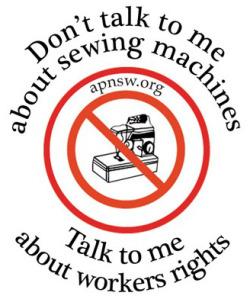 Of all the ideas I brought up in Sex at the Margins, that of the Rescue Industry has created the most stir. Although the book is full of information and alternate ways of thinking about migrating women, service work that includes sex and other topics, the view I take of the social sector that sets out to help and save people from selling sex touched a cultural nerve. That view was formed by anti-imperialism and anti-colonialism, a frustration with ideas of Euroamerican superiority and progressiveness in civilisation. I was a fan of popular books like Lords of Poverty: the power, prestige and corruption of the international aid business, by Graham Hancock, and when I went back to school I was inspired by books like Imposing Aid: Emergency Assistance to Refugees, by Barbara Harrell-Bond, Encountering Development, by Arturo Escobar and The Child Savers: the Invention of Delincuency, by Anthony Platt.
Of all the ideas I brought up in Sex at the Margins, that of the Rescue Industry has created the most stir. Although the book is full of information and alternate ways of thinking about migrating women, service work that includes sex and other topics, the view I take of the social sector that sets out to help and save people from selling sex touched a cultural nerve. That view was formed by anti-imperialism and anti-colonialism, a frustration with ideas of Euroamerican superiority and progressiveness in civilisation. I was a fan of popular books like Lords of Poverty: the power, prestige and corruption of the international aid business, by Graham Hancock, and when I went back to school I was inspired by books like Imposing Aid: Emergency Assistance to Refugees, by Barbara Harrell-Bond, Encountering Development, by Arturo Escobar and The Child Savers: the Invention of Delincuency, by Anthony Platt.
Many people bristle at even a whisper of criticism for presumed benevolent rhetoric and action claimed to be helping and saving disadvantaged people. There are complaints that I do not sufficiently distinguish between ‘good’ helping and ‘bad’. Many would like the term Rescue Industry to be used about only those projects to rescue women that rely on the wrong ideology. I usually avoid making this sort of distinction because the object of my critique is the assumption on anyone’s part that they know how other people ought to live – know better than those people themselves, I mean. Although all of us, including myself, who bother to promote social action can be accused of presuming to Know Best, my meaning is slightly more specific. I refer not only to everyone’s opinions about what sort of world we ought to have but to those people who talk over the voices of those they want to save. Whose careers come first, whose own benevolent identities are of primary interest. Not every social worker, social-justice activist, academic or policymaker falls into this category, but many do.
All blog posts pertaining importantly to the Rescue Industry are grouped together. Some of these discuss particular efforts to help and save, usually to help and save sex workers, but not always. Since my original question out in the field decades ago was Why don’t these NGO folks and funders understand what migrant women are doing? I developed my ideas in relation to women and men who sell sex.
Other categories on this blog are listed below. There is overlap; many posts are categorised in 2 or 3 places. Many Rescue Industry posts are also found under Colonialism.
Sex Work
Trafficking
Migration
Colonialism
Feminisms
Laws
Sexualities
Rescue Industry
–Laura Agustín, the Naked Anthropologist
